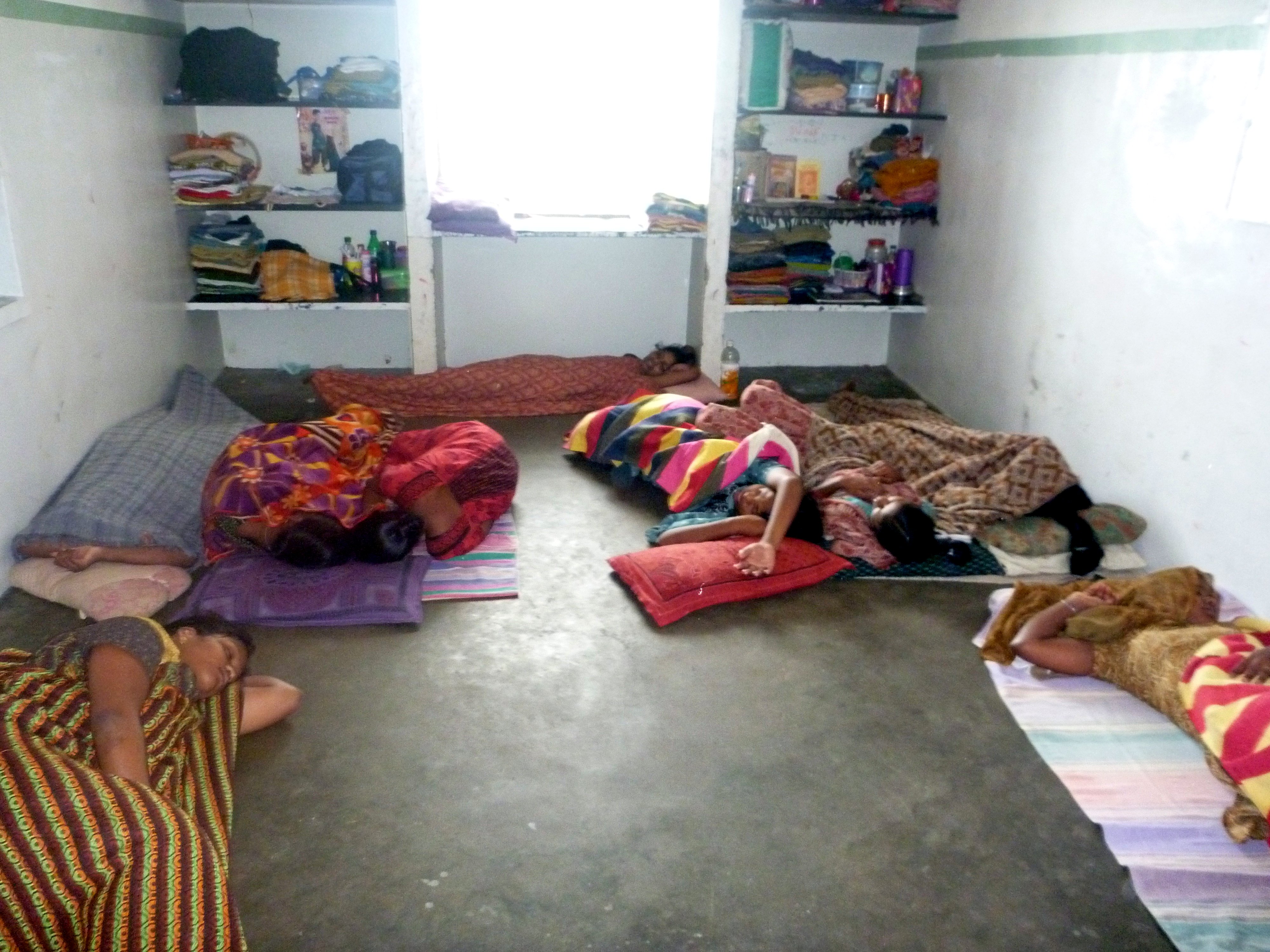(Un)happy brides
Since ancient times, priests and family elders have been referring to newly married Hindu women as “Sumangalis,” meaning women who still have their husbands by their side and thus lead a blessed life. Today, however, the word has taken on a sinister meaning for women working in textile mills in southern India.
When Maheshwari signed up for the “Sumangali” scheme some years back, she was not prepared for the long years of back-breaking and tedious work that awaited her. After all, she was only looking to ease her family’s financial burden and secure her future by earning herself a dowry. And exactly that was what textile factory owners were promising in a scheme called “Sumangali”.
Maheshwari spent three long years at a textile mill herself working under the scheme before she was able to leave. Looking back she says: “Sumangali is a good strategy for companies to maximize their profits. They (the owners) told my parents lies about how we would be taught embroidery, that we’d get good food to eat and we’d have sports activities.” Maheshwari comes from a Dalit family, the caste of untouchables.
A ‘smart’ business model
The Sumangali scheme is designed by textile mills in Tamil Nadu and Karnataka to lure young women between 14 to 18 years of age to work in textile factories. There is no written contract. The women are promised a daily salary of around 220 Rupees, approximately three Euros. At the end of their “training scheme,” which lasts from two to three years, the girls get a lump sum payment of 30,000 to 50,000 Rupees, between 400 and 700 euros.

Maheshwari (extreme left) and Anita Cheria speak about the Sumangalis at the Friedrich Ebert Foundation in Bonn
This business model is the reason why the scheme is called “Sumangali.” The idea is that young girls from the age of 14 years can begin working and picking up skills. At the end of these three years, they come back home with the money which can be used as their wedding dowry, so that the girls are well on their way to become “Sumangalis,” or happy brides.
Luring the poor
At first glance, the scheme appears very rosy and poor families in rural southern India are attracted to something they feel is a good future plan for their daughters. But the mill owners are definitely not on a philanthropic campaign to foster youth education. Maheshwari was lucky. she managed to get the 75,000 Rupees or nearly 1000 Euros she was promised after her training was over. But others are not so lucky. Maheshwari relates the story of a young 14-year-old girl called Shanti. Shanti was a victim of the appalling hygiene in the hostels where the trainees live. She died of diarrhea after four and a half years in the factory. In another case, a woman textile worker called Selvi contracted tuberculosis after being exposed to cotton fibers for a long time.
Gisela Burckhardt of Femnet, a German women’s rights organization, confirms this. She often travels to India and Bangladesh to look at the conditions of textile workers. She has taken pictures of the conditions in these factories to show them to consumers back in Germany. “Girls live within the mill premises,” she says. “They are not allowed to interact with anyone from outside.”
Anita Cheria of Open Space, a development organization, has worked intensively with garment industry workers. She says that 90 percent of the workers employed in such factories are women. Most of these are semi-literate and are immigrants. The work involved is very stressful. They work up to 12 hours a day and sit in one position for most of that time. “If a worker is late by five minutes two days in a month, half a day’s pay is deducted from her monthly salary,” adds Cheria. These workers are not allowed to join trade unions or to participate in their activities. They are confined to the hostel premises so that they cannot be influenced from outside. In Tamil Nadu alone, 200,000 girls are employed in 1,311 mills under these circumstances.
Cheap clothes for the youth
Burckhardt’s Femnet has recently carried out investigative research into these mills and has established who they supply. Since the mill owners are mostly sub-contractors, this is anything but easy. But Femnet says that careful analysis of exports statistics reveals that a lot of the textiles produced are sold to Primark, an emerging clothing chain primarily targeting young people in Germany. Anita Cheria claims that Shahi Export House in Bangalore is selling to C&A and Esprit.
Femnet, which has launched the “Clean Clothes Campaign”, is now demanding that the German government take steps to prevent the further exploitation of these women. Earlier this year, a textile factory in Bangladesh’s capital Dhaka collapsed, killing nearly 1,129 workers. This event led many consumers in Europe to raise questions about ethical practices in the textiles business in South Asia.
Femnet believes that one way of avoiding exploitation is to ensure that the victims of such unethical practices are able to file complaints in Germany. Consumers in Europe and the West must become still more aware of what they buy and where their products come from, says Femnet. If this happens, there is the possibility that real improvements in the lives of these workers can be achieved. And European consumers need fear their guilty consciences no longer.
Author: Manasi Gopalakrishnan
Editor: Grahame Lucas







